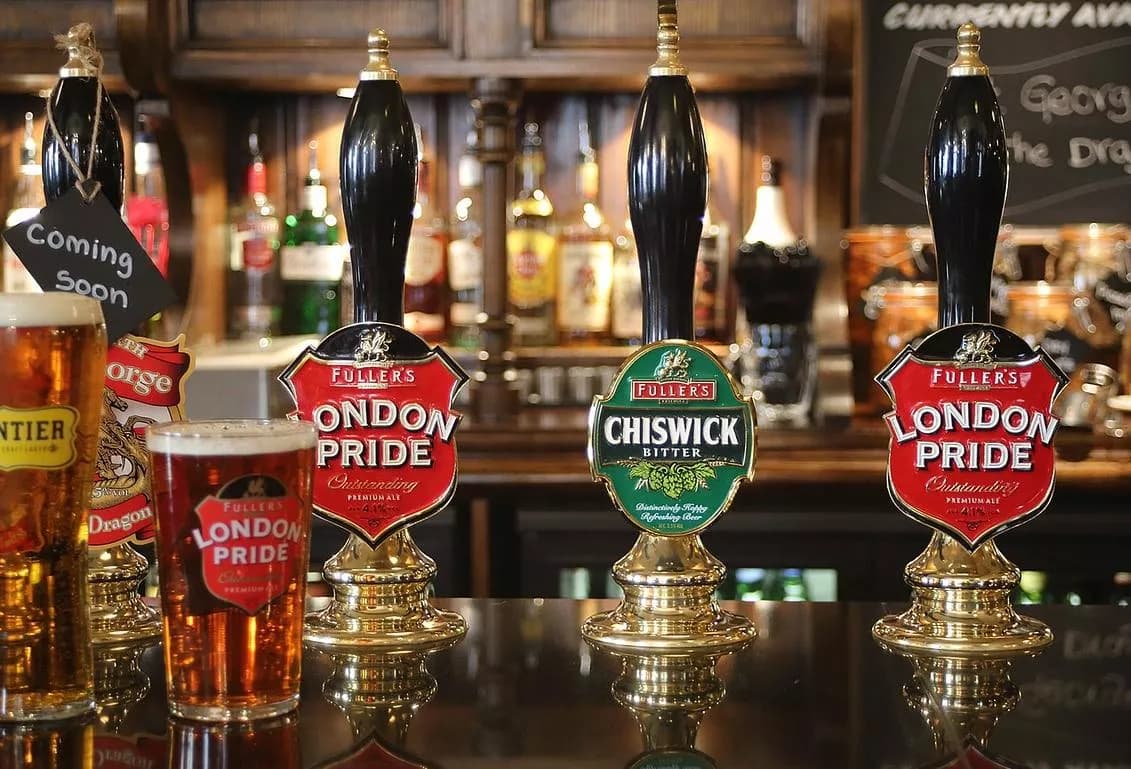
From Pints to Profits: How Work-From-Home is Fueling a Pub Revival
Private equity pours millions into suburban and village pubs as drinking habits shift away from city centers
The clink of glasses and the hum of conversation are once again filling Britain's pubs, but this time, the action isn't where you'd expect. As the work-from-home trend reshapes daily routines, a quiet revolution is brewing in the UK's pub industry. Private equity firms are tapping into this transformation, investing heavily in suburban and village pubs that cater to a new kind of patron: the local remote worker.
"We'll see more investment activity across the sector," said Philipp Westermann, Head of Europe and co-Managing Partner at Proprium Capital Partners. "Pubs have proven remarkably resilient, and even with a consumer squeeze, they still represent an affordable night out. We've owned pubs through good and bad economic times, and in every situation, they have survived those ups and downs."
A Shift in Drinking Habits
The pandemic didn't just change where we work; it altered where and how we unwind. The traditional post-work pint near the office has given way to a leisurely drink closer to home. Some are even turning pubs into their daytime offices, blurring the lines between work and leisure spaces.
"Pubs have generally been performing above the hospitality market for the past year," noted Reuben Pullan, Senior Insight Consultant at CGA. "We're starting to pick up trends that particularly younger consumers are trading out nightclub visits for wet-led pub visits, and pubs are making more efforts to broaden their offering into the experiential market."
Investors Take Notice
This shift hasn't gone unnoticed. Private equity firms are seizing the opportunity to invest in community pubs, with returns often hitting 20% or more. The focus is on wet-led establishments—those that generate the majority of revenue from drinks rather than food.
"Increased work-from-home has favored community locations, and we're likely to stick to our knitting when it comes to the type of pubs we acquire," Westermann said. Proprium Capital Partners, which owns Admiral Taverns, recently acquired a portfolio of 18 freehold pubs from Marston's, adding to its estate of over 1,420 pubs across the UK.
A Changing of the Guard
The pandemic realigned ownership in the pub sector. Several major players have exited, including CBRE Investment Management, Patron Capital, and NewRiver. In their place, a new wave of private equity investors has emerged.
In 2021, Fortress Investment Group, a U.S.-based private equity firm and owner of Majestic Wines, purchased Punch Pubs for nearly £1 billion, acquiring almost 1,300 pubs. Punch owns over 90% of its property freeholds, making it an attractive target. The company focuses on rural and suburban pubs and has invested £240 million in its estate over the past five years.
Heineken's Big Bet
Even industry giants are doubling down. Heineken UK announced a £39 million investment to upgrade and reopen pubs in its Star Pubs estate this year, signaling confidence in "the resilience of the great British local." The plan includes improvements to a quarter of its 2,400 pubs and reopening 62 long-closed locations.
"This investment demonstrates our commitment to the great British pub," a Heineken spokesperson said. "By the end of the year, we'll have reopened 156 pubs since the start of 2023, reducing the number of closed pubs in our estate to pre-pandemic levels."
The Resilience of Wet-Led Pubs
Wet-led pubs have consistently outperformed the total market over the past 12 months, according to CGA RSM UK management data. London, in particular, saw sales up 11.9% during July as UEFA Euro 2024 concluded.
"The pub sector has bifurcated, which has benefited the wet-led community pub sector," Westermann explained. "If you look at the food-led pub market post-pandemic, those establishments have been hit by reduced demand from cost-cutting customers and increases in energy and labor costs. By contrast, the wet-led sector is very cost-light."
Challenges and Opportunities
Despite the optimism, the industry faces challenges. The number of pubs in England and Wales fell to 39,096 at the end of the first half of 2024, down 305 from the previous year, according to data from Altus. The decline continues a long-term trend, with UK pub numbers down from 60,800 in 2000 to 47,200 in 2019.
"The Friday lunchtime and evening trade has been lost because people typically work at home that day, which conversely has been a boon to local pubs," said Richard Moulds, partner at Coverpoint Foodservice Consulting. "It would take a bold investor to acquire city center pubs right now."
Looking Ahead
Yet, many see a bright future. Tim Martin, founder and chair of JD Wetherspoon, plans to open 130 new pubs over the next decade, adding to the 814 he already operates.
"I suspect we may see some of these city center pubs become more experiential, with themed gaming, to try and differentiate and attract customers," Moulds suggested.
Conclusion
The work-from-home era has reshaped not just our professional lives but also our social habits. Private equity firms are capitalizing on this shift, pouring millions into pubs that serve as community hubs. With strong returns and a resilient customer base, suburban and village pubs are raising a glass to a promising future.
As Westermann aptly put it, "As an investor, we like the fact they are underpinned with this flexibility, and we really like the operational performance."
While challenges remain, the renewed investment signals a sector poised for growth. The pub, long a staple of British culture, is adapting—and thriving—in a changing world.